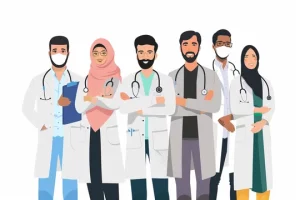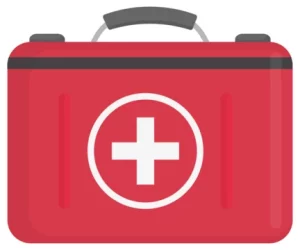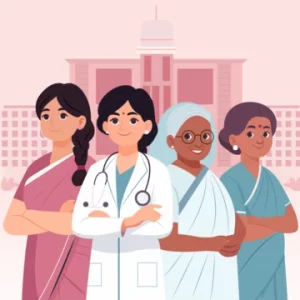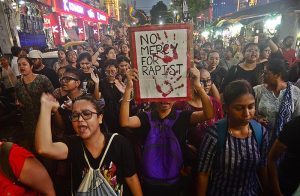By Ranjita Biswas
 We were travelling by an Uber cab in Toronto and talking nineteen to the dozen, as women buddies do when meeting after a long time. I whispered to my friends, the driver seemed to be from Afghanistan. There are many immigrants from the country in Canada. Frankly, it’s also a rather pet speculation I indulge in, guessing the ethnic identity of strangers, and when found correct, I mumble to myself ‘Bingo!’
We were travelling by an Uber cab in Toronto and talking nineteen to the dozen, as women buddies do when meeting after a long time. I whispered to my friends, the driver seemed to be from Afghanistan. There are many immigrants from the country in Canada. Frankly, it’s also a rather pet speculation I indulge in, guessing the ethnic identity of strangers, and when found correct, I mumble to myself ‘Bingo!’
Suddenly, during a lull in our incessant chatter, the driver commented, “You seem to be from Bengal.”
Whoa! How did he know that, we asked.
 “Well, I have been to Delhi for medical treatment. There I met people from many regions of your country. Bengali is a sweet language, so I remembered some words.”
“Well, I have been to Delhi for medical treatment. There I met people from many regions of your country. Bengali is a sweet language, so I remembered some words.”
“And are you originally from Afghanistan?” I couldn’t help asking.
“Yes.” I silently congratulated myself.
“Why Delhi? Why not here?” My Canadian NRI friend asked.
“Well, their medical facilities are very good. Over here, as you know, though treatment is free we have to wait for months, and sometimes years queuing up for an appointment and then treatment. By then who knows whether my health will worsen. It’s better to spend from my own savings to get it done with all the modern treatment available in India.”
We felt rather proud and parted ways with a khodahafez- goodbye !
 Another location: Seattle this time. I disembarked from a Flixbus shuttle bus from Vancouver and was looking desperately for a cab to go to the hotel. I took it for granted that I’d find a cruising cab easily, like back home. My phone’s internet connection was not working to call an Uber and with two huge suitcases I didn’t know what to do.
Another location: Seattle this time. I disembarked from a Flixbus shuttle bus from Vancouver and was looking desperately for a cab to go to the hotel. I took it for granted that I’d find a cruising cab easily, like back home. My phone’s internet connection was not working to call an Uber and with two huge suitcases I didn’t know what to do.
But I have belief in human connection. A kindly guy passing by, whose help I sought, told me that I had to call the cab agency only then a cab would come to pick me up. He called the number from his own phone- and see! It worked.
The driver looked like one from east Africa originally. Somalia? Ethiopia? My guessing game started. He was a friendly guy and asked me right away, “Where are you from?”
“India.” “India?” he guffawed.
“I am originally from Ethiopia (brownie points to me, folks!). I’ve been to India.”
“As a tourist?” I asked.
 “No, I went to Hyderabad for treatment. Medical care is so good there! And they do everything, all the checks of the body, etc. Over here they call you at different times for different checks, and it costs a bomb. I am very happy with the result. Next time I want to visit as a tourist. India is too big to cover on one or two trips.”
“No, I went to Hyderabad for treatment. Medical care is so good there! And they do everything, all the checks of the body, etc. Over here they call you at different times for different checks, and it costs a bomb. I am very happy with the result. Next time I want to visit as a tourist. India is too big to cover on one or two trips.”
Proud again, I saluted our brilliant medics mentally. I had heard about medical tourism, but didn’t know the extent of its reach and reputation of our medical care.
On this gloomy August afternoon as the rain pours outside, these thoughts come and go as I watch on the TV screen demonstrators on the street braving the downpour to protest against a medic’s horrible death in the premises of a reputed Kolkata hospital. Raped, strangled.
 Men and women, young and old, from professions beyond the medical fraternity, have been on the street for more than a week now- and not only in the city but across the country, and beyond the shores too.
Men and women, young and old, from professions beyond the medical fraternity, have been on the street for more than a week now- and not only in the city but across the country, and beyond the shores too.
What was her fault? That she was on night duty? But doctors are supposed to. Why should a ‘solution’ be sought to prevent women from attending night duties? When you can’t ensure safety for her, you want to lock her up? While the ‘equality’ slogan is flaunted by the powers that be, why does she – because she is a woman, take undue advantage in a profession like medical care? Why should the male colleagues accept this ‘discrimination’ in reverse?
Doctors enter the field as healers (that some misuse this noble profession is a different matter). Those who take care of our health when we seek them out in distress, is this the way to treat them? Instances of assaulting docs is not uncommon either, beaten up by relatives when a patient dies, despite best efforts on their parts. Safety norms, legally set, for all men and women in the medical profession, a long demand by medical associations, are in focus again. Does it need a terrible incident to remind me of it again?
As the churning continues- of protests, investigation by the top agency of the country, arguments and counter arguments, and witch hunts, I suddenly remember that Afghan driver in Toronto and the Ethiopian one in Seattle singing paeans of medical care in our country, I wonder if they are watching the events unfolding on the live coverage. I wish they aren’t, bowing in shame. (TWF)





 We were travelling by an Uber cab in Toronto and talking nineteen to the dozen, as women buddies do when meeting after a long time. I whispered to my friends, the driver seemed to be from Afghanistan. There are many immigrants from the country in Canada. Frankly, it’s also a rather pet speculation I indulge in, guessing the ethnic identity of strangers, and when found correct, I mumble to myself ‘Bingo!’
We were travelling by an Uber cab in Toronto and talking nineteen to the dozen, as women buddies do when meeting after a long time. I whispered to my friends, the driver seemed to be from Afghanistan. There are many immigrants from the country in Canada. Frankly, it’s also a rather pet speculation I indulge in, guessing the ethnic identity of strangers, and when found correct, I mumble to myself ‘Bingo!’